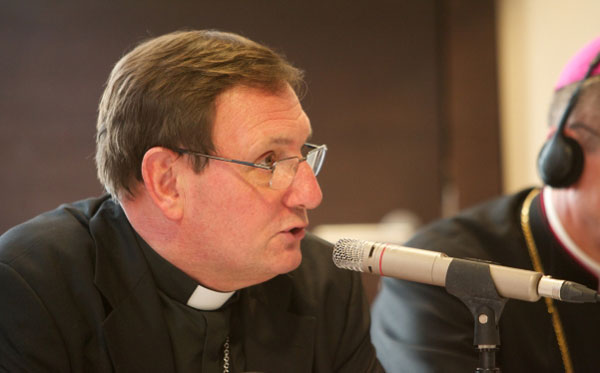Msgr. Jean Laffitte in Bratislava

The Slovak Bishops’ Conference organized an international conference in Bratislava, on Friday, April 26th, on the theme of gender ideology, entitled “Understanding human dignity. The position of the Catholic Church on gender ideology.”
After the Authorities’ greetings, H.E. Msgr. Carrasco de Paula’s lecture on the theme “Gender equality and its consequences” and the report by Dr. Anna Záborská, of the European Parliament, on the issue of gender equality in the European legislation, Secretary of the Pontifical Council H.E. Msgr. Laffitte spoke about the correlation between gender equality and the family.
During his appreciated talk, among other things, Bishop Laffitte said: «Being a ‘father’ "or being a ‘mother’ is a gift. Like any gift, it’s a good to receive it with gratitude. I believe that this fact appears for the first time as early as chapter four of the Book of Genesis, when Eve exclaims: ‘I have gotten a man from the Lord.’ Eve knows perfectly well what she has done with Adam and that, as a consequence of their act, the child has come to exist. Yet, she shows a clear awareness that this happy event is to be attributed to God. If the child is a gift from God, then it must be gratuitous and, therefore, not bound by an absolute necessity».
Further on, he said: «Elective relations commit the human being more deeply. John Paul II said that the concept of ‘neighbor’ is related to man as such, as well as to a person’s value itself, regardless of any reference to this or that community or society (see Person and Act, p. 331 ss.). After all, what is a neighbor? He is someone to whom we feel close and whom we recognize as being close to us. This concerns the recognition of a kind of familiarity, of a natural community, and of a wealth that is offered to us as a gift. Friendship and love are a specific and more intense participation in a person’s humanity – it’s more intense because it engages one’s inner life. Love is in the presence of the beloved in the one who loves, as the ancients used to say».